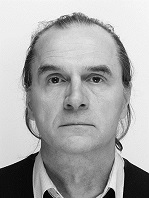Broadcasting on Its Way to Europe
One of the main characteristics of modern capitalism is mass culture, the part of culture that influences all of society and the people in it.
For example, the influence of electronic media: even before a child learns his ABCs, he has watched thousands of hours of TV. The TV has engaged him more than his parents. The average child spends about 800 hours in school during the scholastic year, but about 3.5 hours a day, for a total of 1300 hours a year. None of us can escape the pervasive television set, even adults. There are 40 hours in a typical work week but the average Estonian spends 25 hours in front of the TV.
Do all these hours spent in front of the TV add up to some effect? Is it a good one? Can it be used to make average Europeans better citizens? To help Estonia be more competitive in the EU? Is developing a policy promoting this a question of state policy, or will it be the mechanisms of the liberal market economy that result in progress? The writer attempts to provide an answer to these questions, analyzing closely the commercial television market in Estonia, use of airtime and share of Estonian-language programming as well as the prospects of digital broadcasting.
